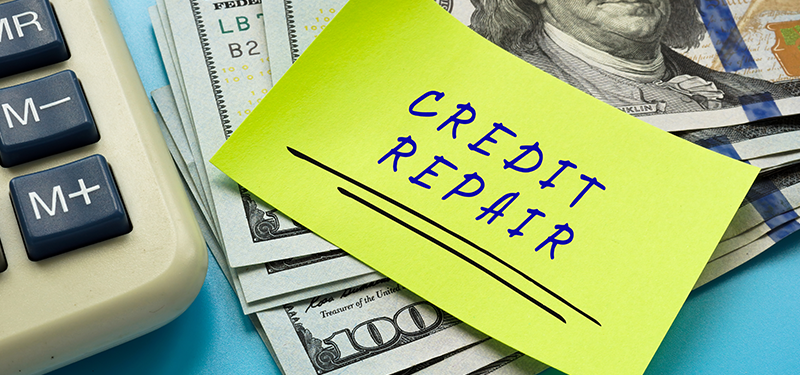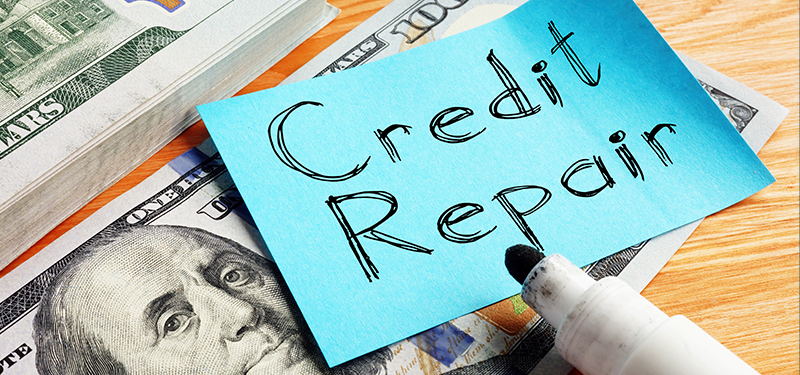What Is Credit Repair, Anyways?

According to the Cambridge Dictionary, credit repair is:
The process by which a person or business improves their ability to borrow money, for example, by correcting wrong information in their credit report or reducing their amount of debt more quickly.
That’s a pretty serviceable definition that captures a little of both the “how” and the “why” behind credit repair. There are some that are focused on their credit score for its own sake. They want to have the highest credit score possible – like highest in an online game. And work it without regard to any outside use for having that high credit score. But for most who look into credit repair, it is often a means to another end.
As our handy Cambridge definition suggests, one often uses credit repair to, “…improve their ability to borrow money.” Simply put, the status of our credit is a major determinant in our to secure loans – home, auto, personal – or other forms of credit – like a credit card. And when a consumer’s credit is lacking that, “ability to borrow money” is negatively impacted. Credit repair attempts to improve that situation.
So now that we’ve explored the “why” part of credit repair, let’s roll up our sleeves and dig into the credit repair process itself, or the “how” part of credit repair.
At its core, the credit repair process attempts to improve the information on a consumer’s credit report, and by doing that, improve their credit score. The credit report is really the foundation for this work, and where the credit repair process starts.
There are three primary credit reports generated by the major credit bureaus – Equifax, Experian, and TransUnion. The process begins with obtaining a copy of each report and evaluating it for issues that could negatively impact how a consumer’s credit history is judged. Each of the credit bureaus will sell you a copy of your credit report for a relatively small amount.
Equifax is $15.95
TransUnion is $19.95, with a monthly subscription
Experian is currently Free
Here’s a list of some the items to look out for on a credit report:
- Late payment
- Charged off account
- Collection account
- Tax Lien
- Judgment
- Bankruptcy
- Foreclosure/Load modification
- Credit card balances over 50% of their credit limits – even 1 card will lower the score
- Closing long established credit cards
- Too many inquiries from applying for credit
- Only having a loan or only having revolving credit
These can all have a negative impact on your credit and how lenders perceive your credit worthiness. In addition to these credit reports can have errors in them. It’s been estimated that up to 20% of all credit reports have some error in them serious enough to impact their credit.
Once you’ve found the issues on your credit reports that are negatively impacting your credit, then what? Dispute!
The dispute process is simply bringing to attention errors or problems on your credit report. The consumer can submit their dispute either with the credit bureau or directly to the creditor showing the problem issue. When disputing errors on a credit report the consumer is armed by Fair Credit Reporting Act.
What’s great about the act is it requires the credit bureaus to investigate and respond when a consumer disputes an item on their credit report. The bureau has 30-days to investigate and respond back to the consumer on any disputed item. Within that time, the creditor who reported that item must verify the information is correct. If they do, then the item remains. But if they cannot verify it, or do not respond back within the 30-day window given, then the item must be removed from the report.
What can be disputed on a credit report? In a word – anything. But generally to get the best results you should only focus on those areas that are in error or improperly stated. Errors, incorrect information, are pretty obvious. Improperly stated items can cover a wide range of things, but good example might be a negative account that appears both with the original creditor and the collection agency the debt was sold to. This type of item you could dispute to have removed and only appear once.
Finally, the credit repair process can be done directly by the consumer, or by a professional credit repair firm on the consumer’s behalf. Determining whether or not to use a credit repair firm largely depends on the individual’s circumstance. Effectively performing credit repair can be time consuming and learning a number of new things – interpreting credit reports, accessing online information, what and how to dispute items, etc. If a consumer has the time, and is willing to work through the learning curve needed for credit repair, then it might be a good option for them. Advantages for working with a firm are you don’t have to expend the time energy directly yourself – they do that work for you – and since it’s their area of expertise, they can in some cases get changes made quicker and be more effective at contesting a broader set of negative items on the credit reports.
However a individual chooses to approach it, repairing poor credit and maintaining it is critically important if a consumer is to have as many economic options available to them.





